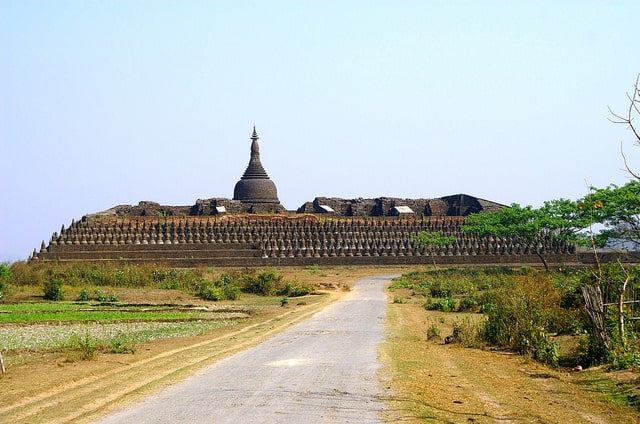
Fighting between Myanmar’s military and ethnic Rakhine insurgents has now reached the ancient temples of Mrauk U, the former capital of the Rakhine kingdom and a popular tourist site, local residents said Monday.
Rakhine state in Myanmar’s west is riven with ethnic and religious divisions.
It came under the global spotlight after the bloody 2017 army crackdown that forced some 740,000 Rohingya Muslims over the border into Bangladesh.
But now the army is waging war against the Arakan Army (AA), an insurgent group fighting for more autonomy for ethnic Rakhine Buddhists, a population that also stands accused of aiding the military in their expulsion of the Rohingya.
Several thousand people have been displaced by the spreading violence which has neared the state capital Sittwe and has now engulfed the town of Mrauk U.
“We’ve been hearing gunshots and heavy artillery fire since about 7:30pm,” local historian Khin Than told AFP by phone on Monday evening, adding that she saw soldiers shooting from about 10 vehicles as they drove around town.
“We dare not go outside and are hiding in our homes,” she said. “We do not want our ancient treasures destroyed in the fighting.”
Among the most vulnerable are some 600,000 Rohingya who remain in Rakhine without citizenship, restricted to either camps or their villages.
Fighting over the weekend raged around the town of Kyauktaw, wounding three Rohingya, including two teenagers.
“We are stuck in the middle,” one Rohingya man told AFP, preferring not to give his name.
“Our injured villagers cannot go anywhere for treatment because of the situation. We can’t do anything,” he said.
The military ramped up operations against the AA after the armed rebels launched a brazen attack on police posts in early January that killed 13 officers.
The area is in strict lockdown and information is difficult to verify independently.
On Saturday, AA insurgents ambushed a cargo ship on the Kaladan river, temporarily abducting the crew and setting the vessel on fire, the state-run Global New Light of Myanmar said.
The rebels enjoy widespread support from many ethnic Rakhine, who have felt marginalised for decades in one of the country’s poorest states.
The group has expanded its ranks since its formation in 2009 and is now believed to have several thousand recruits.
It is feared the expected verdict on Tuesday in the trial of a popular Rakhine politician for alleged treason could be a further flashpoint in Sittwe.

